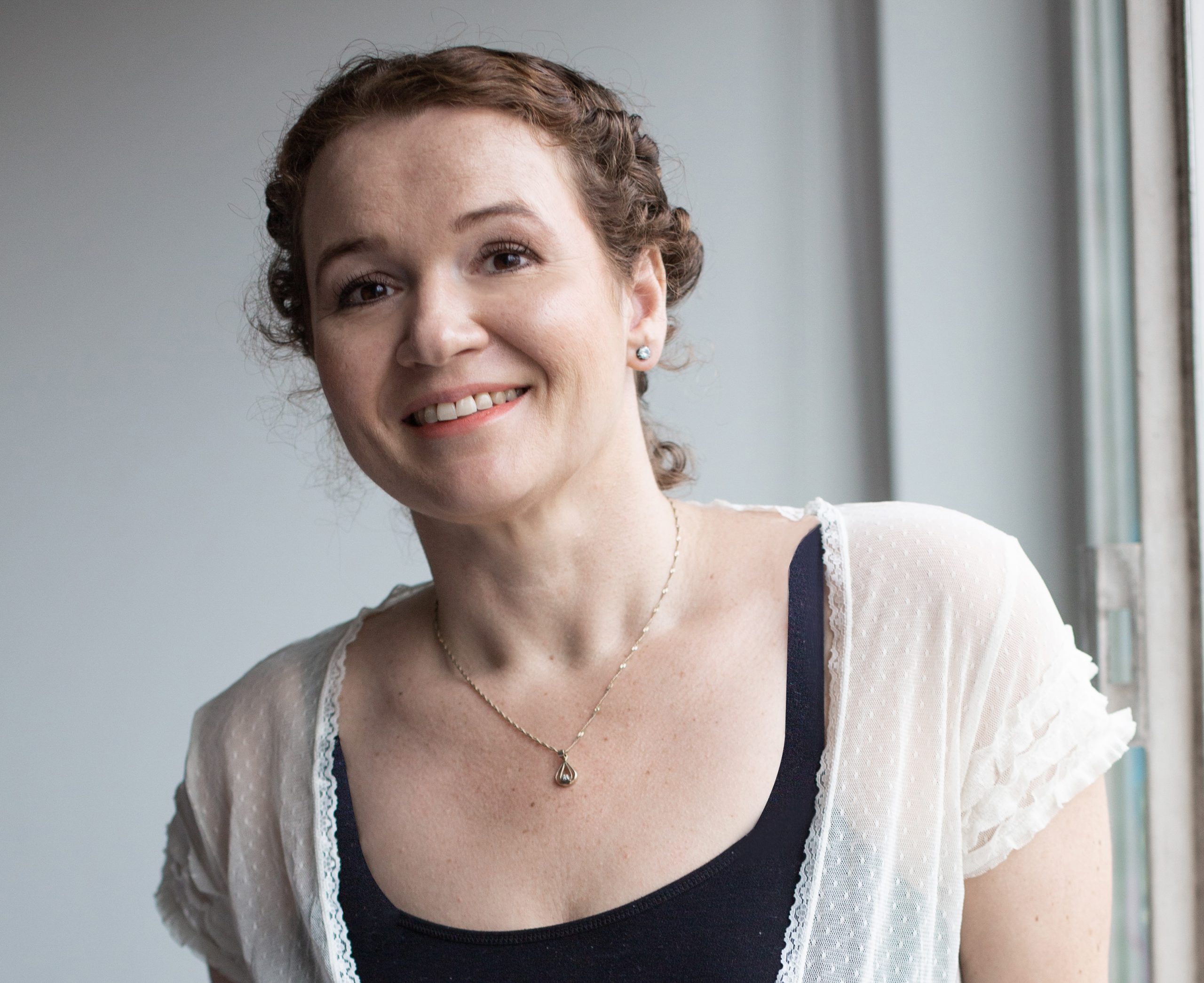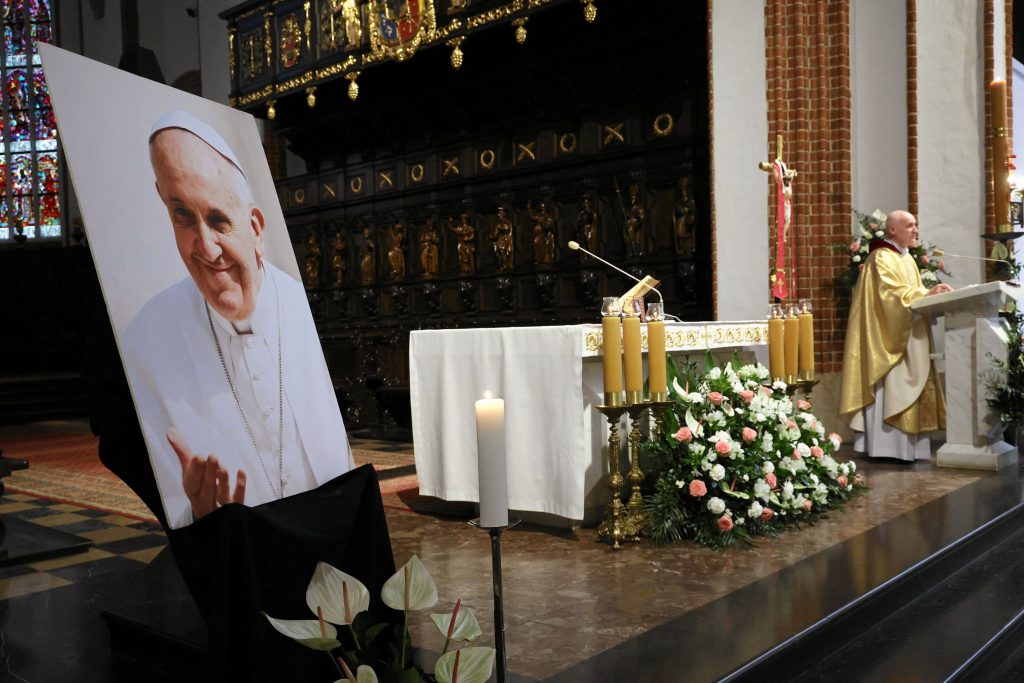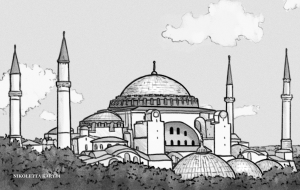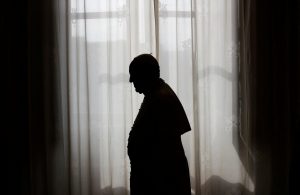An island off the coast of Africa. No name, no mark on the map, no coordinates. Absolutely integrated, however, in the modern European reality, which does not produce adequate policies for the integration of immigrants nor does it want to shed its humanitarian heritage towards the “foreigner”. One such washes up in front of the lighthouse keeper Samuel, who carries his own wounds from the political adventure of his birthplace: from a colony to independence to turn into a military dictatorship. How do you treat a stranger who needs you, doesn’t speak your language and sometimes misinterprets his very existence? Instead of penetrating the inner logic of immigrants, Karen Jennings, who reached the nominations for the Booker in 2021, chooses the other way: how does the “receiver” think and work?
Samuel has resorted to burying at least 32 bodies in the walls fortifying the island. In which ways do these burials function as a symbolism?
In any book there will be different interpretations and symbols for each reader, and I don’t like to be prescriptive. What I can say is that, in some ways, those bodies literally become part of the wall that Samuel build to try and make the island his home and to control it. He allows the bodies onto his island… but not to live. He is decent to them, gives them a burial, but he does not want to share his home with them. I think this can be true of many of us. We will give to charity, but we would not give part of our home/our land away to the destitute.
If Samuel was only a negative hero, he would be incomplete as a literary figure. Where should we look for his humanity?
Samuel is a broken man. He isn’t bad or good, simply human. Being human is commonly associated with being flawed. In that sense, Samuel might even be called quintessentially human, because he is so very flawed. His attempts to belong, to love, to be part of the world have always ended badly for him. Is it any wonder he has become isolated and suspicious? Samuel’s humanity is the same as all of ours. We just don’t necessarily like to admit it.
In a way, Samuel is the ruler of his life and the island but doesn’t have a strong connection with politics. Through his “narration,” nevertheless, we learn a lot about the political situation in his homeland. How political could his personal story be?
In one way, history is always going to be political, and that is certainly the case with Samuel. He has been involved in political activities, mostly because he is trying to make a place for himself in the world. Even when he tries to avoid politics, it is like it comes to find him. There is no escaping it. He is shaped by it, for better and for worse.
Which has been the biggest challenge in a book that has little action and the two antiheroes don’t speak the same language?
Every part of it was a challenge! It is very hard to create a convincing narrative, one that the reader engages with and wants to keep reading, when there is so little action and no dialogue to drive it forward. It took a lot of hard work and many, many rewrites to get the right pacing, tone, and dynamic.
In what way does the unnamed island help you achieve a sort of “universality” so that a lot of people can recognize something of their own prejudices?
I have heard that some readers have described the novel as allegorical, and I suppose that is true. By not naming the location, this could really be taking place anywhere. This allows for readers from across the globe to read the novel within their own framework, and to be faced with their own narrow thinking.
The novel meditates on xenophobia and the dark past of Africa. What were you learning about such a history while growing up in South Africa? There is always a problem dealing with a continent as an entity, whereas there are a lot of “histories” actually.
Yes, of course. I really hate it when Africa is thought of as a single country. There are 54 countries and more than 2000 languages, with hundreds of cultures. It is impossible to reduce that into something bland and stereotypical. Instead of stripping Africa of its richness, I wanted to look at the general history of colonialism and the way the continent was sliced up by European nations in the 1880s. What have been the repercussions of that? How have they reverberated throughout the continent and affected the lives of ordinary individuals? That’s what I wanted to examine – going deeper than just a cartoon from the 1880s showing leaders cutting up a cake, as we were shown in high school.
Have you done a lot of research -and in which areas—preparing to write the novel?
Yes, I always do research for my novels. I feel that it is important to do that whenever you are writing about something outside of your own experience. And of course I had to read about the general history of Africa, to see what patterns arose. Research is vital to any writer. If you don’t want to research then you don’t want to write with authenticity.
It seems that you like simple words that feel normal. Is this a choice for the rhythm you want to produce?
I cannot stand it when writers use words simply to show off how clever they are. That is not the purpose of a novel. If people want to show off then they can go on TikTok and recite big words. Writing should be accessible, and a shared experience. No one should be dominating anyone else. Showing off is going to distract from the purpose or meaning and value of the book. But maybe that’s why some writers do write in such an exaggerated manner – to hide the fact that they are saying nothing.
How has the nomination for the Booker Prize (2021) changed things for you as a writer?
The most significant thing that it did is allow me to come back to South Africa. I was living in Brazil, with no money of my own and no way to come back. Being home has made all the difference to my life. I am working more with African writers as a mentor. I am also better able to explore my country’s history and what that means for us in the present and the future.
Which is the situation for the poor and desperate nowadays in your homeland?
Inequality between rich and poor in South Africa is greater than anywhere else in the world. We have terrible corruption in high up places, which has been happening for years out in the open. The government hasn’t cared about its people at all. But recently we had elections and the people spoke their displeasure. The result has been a Government of National Unity. Already we are seeing politicians being ousted for corruption. It will take time to improve things, but this is the first step in the right direction in decades.
Which could be your next plan we wait for?
Earlier this year, my novel Crooked Seeds came out in English. It is set in Cape Town and tells about a miserable, drunk lady, dealing with her past. I have also recently finished a manuscript of a novel set in Cape Town in 1838. I am currently working on a short story collection, related to South Africa’s history, and a novel which is set in Cape Town in the present. I have also got ideas for several books, both fiction and non-fiction, so I will be busy for a long time!



